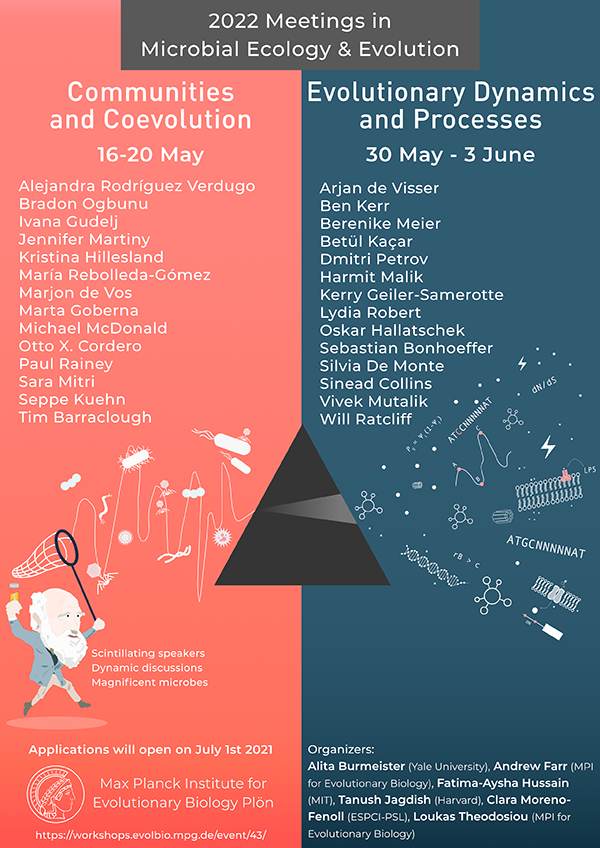Speaker
Description
Microbial communities are incredibly diverse. Molecular techniques such as ‘omics’ have uncovered a vast number of microbial ‘species’ in communities from natural environments. Yet, the ecological and evolutionary processes originating this diversity remain understudied. This study investigated the ecological and evolutionary forces by which new bacterial ‘species’ emerge and coexist in communities. We focused on a commensal interaction between two bacterial species in which Acinetobacter cross-feeds resources to Pseudomonas. We evolved in parallel four experimental replicates of species growing in isolation or together in consortia for 200 generations. After only 60 generations, Pseudomonas diversified into two morphotypes that coexisted until the end of the experiment. Morphotypes differed from the ancestor and each other in one point mutation. Interestingly, the coexistence of mutants was only observed in the presence of Acinetobacter and not in isolation. To further confirm that the commensal interaction with Acinetobacter promoted the diversification of Pseudomonas, we performed invasion experiments, both in the presence and absence of Acinetobacter. In sum, by studying diversification through ecological coexistence theory, we showed that species interactions play an essential role in forming new bacterial ‘species’ in microbial communities.

